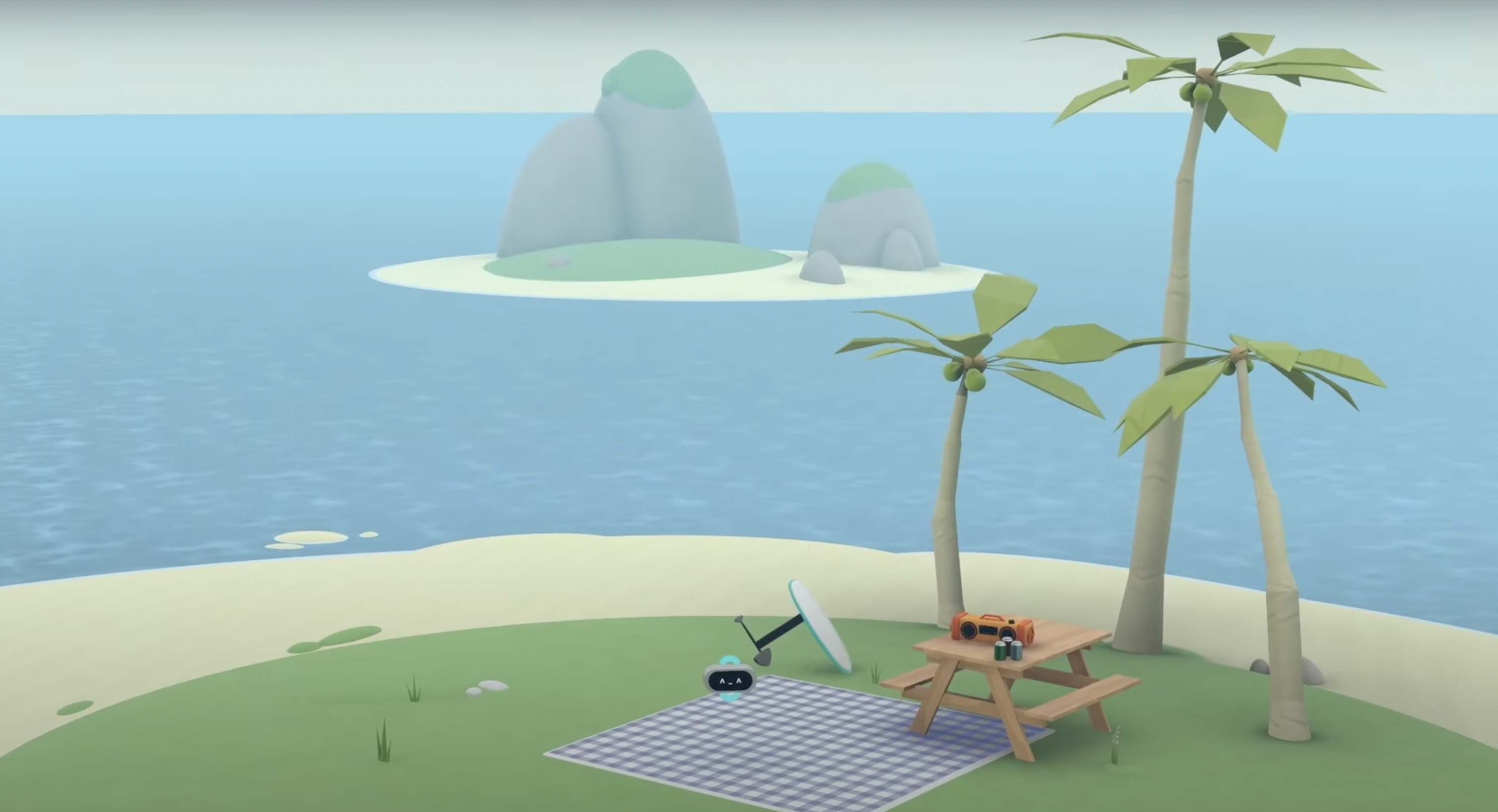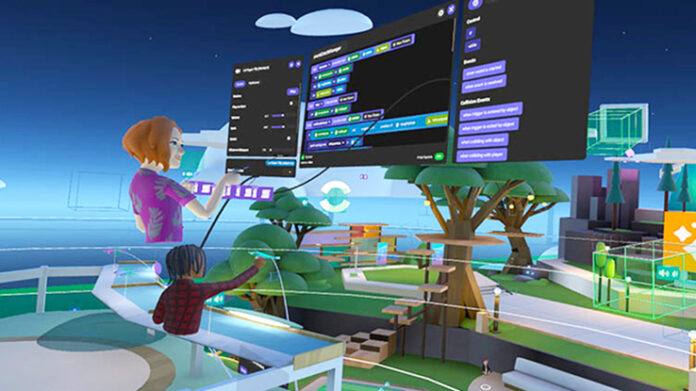Marketing, Publicidad y Comunicación
Meta, antes conocida como Facebook, presentó un prototipo de un sistema de inteligencia artificial que permite a las personas generar o importar elementos a un mundo virtual con comandos de voz. La empresa ve la herramienta, que se llama «Builder Bot«, como un «concepto exploratorio» que muestra el potencial de la IA para crear nuevos mundos en el metaverso. El CEO de Meta, Mark Zuckerberg, mostró el prototipo en el Meta AI: Evento dentro del laboratorio en un video de demostración pregrabado.
En el video, Zuckerberg explicó el proceso de construcción de partes de un mundo virtual describiéndolas. Comienza, por ejemplo, con el mensaje, «vamos a un parque». Luego, el bot crea un paisaje 3D de un parque con césped verde y árboles. Zuckerberg luego dice «en realidad, vamos a la playa», después de lo cual el bot reemplaza el paisaje actual con uno nuevo de arena y agua. Luego dice que quiere agregar nubes y señala que todo está generado por IA. Zuckerberg luego cambia el panorama diciendo que preferiría tener nubes altocúmulos, lo que pretende demostrar cuán específicos pueden ser los comandos de voz.
Posteriormente señala un área específica del agua y dice «agreguemos una isla allí», y el bot crea una. Zuckerberg luego emite varios otros comandos de voz, como agregar árboles y una manta de picnic. También agrega el sonido de las gaviotas y las ballenas. En un momento, incluso agrega un hidroplano, un guiño a uno de sus pasatiempos favoritos, que más tarde se convirtió en un meme.
A lo largo del video, el Builder Bot usa sólo comandos de voz para crear objetos 3D y colocarlos en el paisaje. En el entrada en el blog en la que se anunció el prototipo, Meta dijo que la herramienta “alimentará la creatividad en el metaverso”, pero no hay detalles técnicos.
Créditos de imagen: Meta
La tecnología, si tiene éxito, podría tener implicaciones para otros mundos y plataformas de realidad virtual. Por ejemplo, la plataforma de juego Roblox tiene comenzó a probar funciones de voz en los últimos meses y ofrece su plataforma de desarrollo. Es interesante imaginar cómo una empresa como esta podría algún día adoptar el tipo de tecnología que se muestra en el prototipo de Meta para una experiencia similar de construcción de mundos.
Sin embargo, en su forma actual, el mundo que creó Builder Bot es bastante simple en términos de apariencia y funcionalidad. Y si bien puede ser divertido al principio pronunciar comandos para que aparezcan objetos, no es una forma escalable de crear entornos 3D más complejos. En todo caso, podría ser un divertido parque infantil para una experiencia de nivel de entrada en la creación de mundos virtuales. (Desafortunadamente, sin embargo, Meta ya está demostrando que su entorno virtual puede no ser un lugar seguro para los menores.)
La presentación de Meta de su prototipo se produce cuando la compañía está gastando miles de millones en el metaverso. A principios de este mes, Meta lanzó finanzas para sus Reality Labs, división por primera vez y que reveló que perdió más de 10 mil millones de dólares el año pasado. La compañía dijo que espera que las pérdidas solo aumenten este año, lo que indica que Meta aparentemente tiene un capital infinito para gastar en la construcción del metaverso y probablemente tenga el tiempo para lograrlo antes que otras compañías más pequeñas. Las profundas inversiones de la compañía en el metaverso también sugieren que veremos más prototipos diseñados para avanzar en el metaverso.
Aunque es posible que aún no exista un verdadero «metaverso», Zuckerberg y Meta han utilizado mucho la palabra de moda durante el año pasado e incluso impulsaron su reciente cambio de marca corporativa. Zuckerberg describió previamente el metaverso a los inversores como un “entorno virtual donde puedes estar presente con personas en espacios digitales. Puedes pensar en esto como una Internet incorporada en la que estás dentro en lugar de solo mirar”.
Meta hizo algunos otros anuncios, incluidos sus planes para chatbots basados en IA, una herramienta de entendimiento sobre AI, y un traductor de voz universal. La compañía dice que este último podría proporcionar traducción instantánea de voz a voz en todos los idiomas, incluidos los que se hablan en su mayoría, lo que sería un salto sobre los sistemas de traducción existentes. Meta señaló que el 20% de la población mundial no habla idiomas cubiertos por las herramientas de traducción actuales y que planea superar esto implementando nuevas técnicas de aprendizaje automático.

